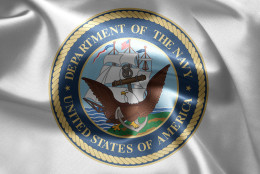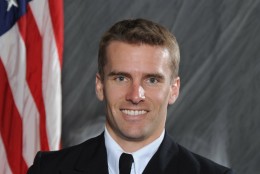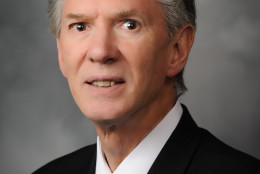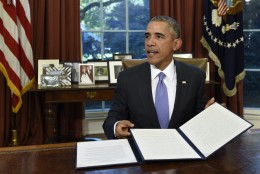Defense
-
The Navy made its first awards under its new Innovation Cell framework for rapid IT acquisition Tuesday, and will insert new technologies for virtual desktops and military base IT infrastructure within the coming months.
November 25, 2015 -
Richard Lieberman, a consultant and retired attorney, warns government contractors not to begin work until they really have a contract.
November 24, 2015 -
The Defense Department is spending more money and getting less out of it, defense analysts told Congress.
November 23, 2015 -
The Air Force’s Air Mobility Command stumbled onto some surprising findings when using big data to save on fuel costs.
November 19, 2015 -
The Navy has to make some sink-or-swim decisions if it wants to remain intact. It must either maintain its fleet size and global presence and risk breaking the force or shrink to what it can afford. That's one finding of a comprehensive study by the Center for Strategic and Budgetary Assessments. Former Navy Officer Bryan Clark, a senior fellow at the Center, joined Federal Drive with Tom Temin to talk about how these decisions could affect the force.
November 19, 2015 -
Over the next few months, sailors throughout the Navy’s fleet can expect to see new consequences when they violate the service’s cybersecurity policies. Troy Johnson is the director of the newly established Navy Cybersecurity division. He tells Federal News Radio’s Jared Serbu accountability measures are one element of what the Navy’s doing to drive home the fact that cybersecurity is everyone’s responsibility.
November 13, 2015 -
Northrop Grumman is celebrating a huge win in the Long Range Strike Bomber competition and Boeing is considering a protest of the final decision. Jim Hasik, a senior fellow at the Atlantic Council, told In Depth with Francis Rose there are still a lot of questions to answer about how much the planes will cost and how fast the Air Force really needs them.
November 04, 2015 -
President Barack Obama's administration continues to work toward his goal of U.S. energy independence by 2018. Meeting that goal may be good policy, but it may not be good military strategy. Lt. Cmdr. Scott Bennie of the Navy Reserve joined In Depth with Francis Rose on Pentagon Solutions. He explained the strategy problem in a piece for the U.S. Naval Institute. His views are his own and not the views of the Navy or the Naval Institute. He said walking away from our relationships with oil producing countries could leave us in a precarious situation militarily.
November 04, 2015 -
The Air Force is working on a rapid acquisition model that will be more conducive to open architectures.
November 04, 2015 -
Congress decided yesterday what programs will get a haircut in freeing up $5 billion in defense spending. Among the programs is the Long Range Strike Bomber and defense readiness increases.
November 03, 2015 -
Establishing insider threat programs was a key Defense recommendation after the 2013 Navy Yard shootings. Some companies that do business with the government are far ahead and waiting for agencies to catch up. DoD officials now consider aerospace giant Lockheed Martin's program as a model.
October 30, 2015 -
Creating more government innovation won't come without some creativity, some agency and industry experts say. Adam Tarsi, chief of staff of DoD's Combating Terrorism Technical Support Office, said agencies should widen their approach and position itself as an incubator for startup companies.
October 29, 2015 -
Congress will rework the Defense authorization act to conform to budget deal parameters if it cannot garner enough votes to override the President’s veto.
October 29, 2015 -
The 9-year struggle to fill federal jobs in North Dakota's oil-boom towns offers a stark example to the rest of the government of just how hard it can be to keep federal workers when private employers beckon.
October 22, 2015 -
The F-35 Joint Strike Fighter program has two new problems to deal with. According to Stars and Stripes, the program's manager, Lt. Gen. Christopher Bogdan, told a House Armed Services subcommittee that his office wants to make the 5 1/2 pound helmet about 6 ounces lighter to prevent pilots that weigh less than 136 pounds from having their necks snap if they have to eject from the aircraft. The other problem is one of the international partners committed to buying the aircraft looks like it's going to bail out. New Canadian Prime-minster Justin Trudeau's campaign platform included cancelling Canada's participation in the F-35 program. Richard Aboulafia, vice president for analysis at the Teal Group, offers his take on In Depth with Francis Rose.
October 22, 2015















